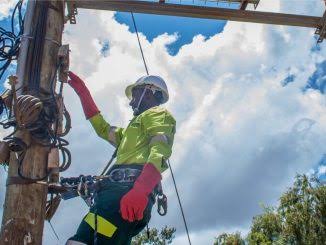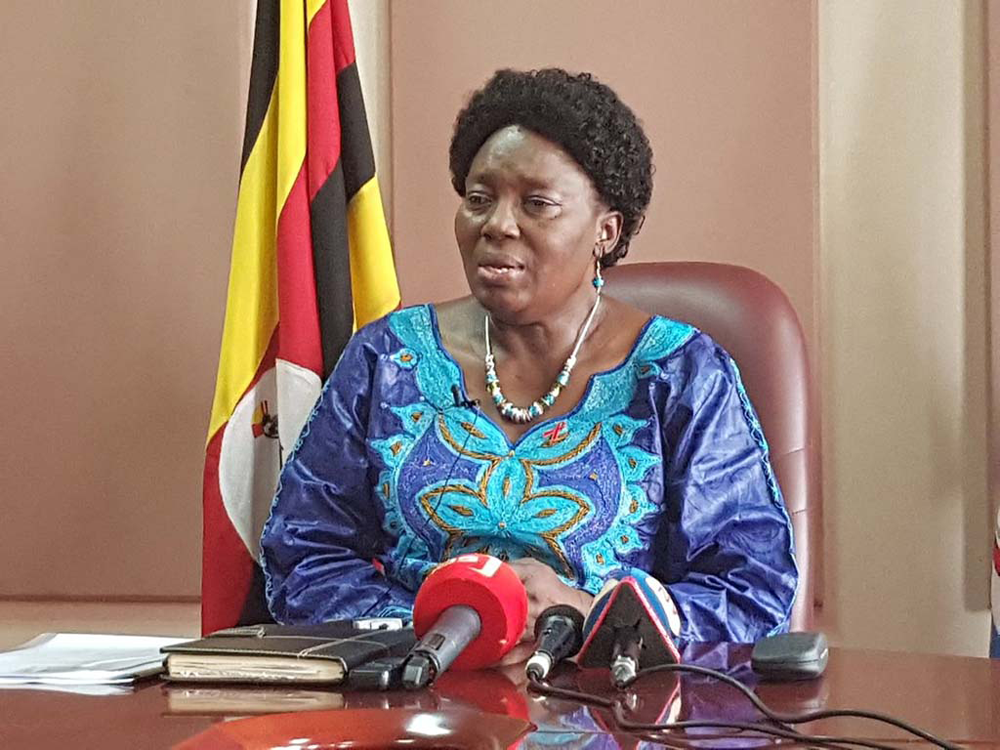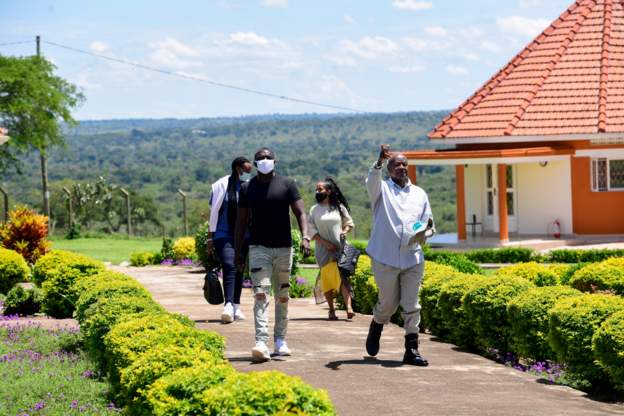Most health Centers in Kampala have reintroduced Standard Operating Procedures-SOPs used at the peak of the COVID-19 pandemic to prevent against the spread of the Ebola Sudan virus diseases.
Health Centers managed under Kampala Capital City Authority-KCCA are now asking people seeking to access the facilities to wear their masks and wash hands.
Dr. Alex Ndyabakira, the City Incident Commander says they instructed all health facilities to be on the alert and activate SOPs to prevent against the spread of the Ebola virus disease.
At Kiswa Health Center III in Bugoloobi, patients are asked to wear their masks and constantly reminded by health workers to keep them on.
The Health workers are seen wearing masks and using gloves when examining all patients.
The officer in charge at Kiswa Health Center, Senior Nursing Officer Irene Nabukwasi says the staff are under instruction to incorporate Ebola in their health communication to the over 800 patients they receive at the facility daily.
Nabukwasi also says that they are holding continuous medical education sessions for their health workers to ensure that they are ready to deal appropriately with patients who might be victims of Ebola.
Kiswa is not a designated treatment facility but attends to hundreds of patients from different communities of Bugoloobi, Nakawa, Kitintale and others who might have contracted Ebola.
The officer says that they have handled two suspects so far, one from last week and the other from the preceding week. Nabukwasi says both suspects were tested for Ebola and the result for one of them came out as negative hence free of the Ebola Virus disease.
Results from the second test are yet to be released.
Kiswa Health Center III also received a tent from World Health Organisation which was delivered Tuesday Morning.
Sr. Nabukwasi says the tent shall be used as holding area for suspected victims of the Ebola Virus disease before they are transferred to isolation centers.
Kampala has two isolation centers, one at the China Friendship hospital in Naguru with a capacity of 20 people and another at Mulago Hospital with a capacity of 120 people.
The facility had a tent in which they held the suspects but this was not enclosed, something Nabukwasi says compromised the privacy of the suspects and health workers.
The new tent has a dressing section for the medical workers and lab technicians who shall pick samples from suspects before transferring them to the suspects to the Isolation Center in Mulago.
At the Kawaala Health Center there are also efforts to sensitize patients and also guard against Ebola virus spread.
Although Ebola virus disease is not airborne like COVID 19, it is transmitted through exposure to bodily fluids like sweat, blood or saliva of an infected person.
Experts say that when for instance an infected person coughs and their saliva lands on another person’s skin, they too can contract Ebola.
Now as a preventive measure, at Kawaala Health Center, there are displayed messages about Ebola transmission and prevention printed on a banner erected at the gate and on flip charts at the reception and in corridors.
Security guards at the gate also ask people to wear masks before accessing the facility, although after entry. However, there is no enforcement for people to keep their masks on and also to wash their hands after entering.
The facility has also reserved one of the tents as a holding area for suspected Ebola cases.
The tent donated by Amref Health Africa can accommodate over 20 people and it is there that health workers pick samples from suspects for testing.
However, although health workers who handle suspected Ebola victims wear personal protective gear, some of the other health workers don’t wear masks, and sometimes interact with patients especially children without wearing gloves.
On Tuesday 24th October, five cases suspected of Ebola were reported at Kawaala Health Center.
URN also visited Kisenyi Health Center IV and observed charts displayed in the corridors of the facility and hand washing facilities with water and soap are set up at the entrance.
Security at Kisenyi is seen enforcing SOPs for people in the facility’s compound or buildings asking people to keep their masks on and avoid crowding in the corridors.
Similarly, at Kitebi Health Center III, the security guards at the gate ask people to wear their masks although after entry, there is minimal enforcement and several patients abandon them.
There are messages displayed on the notice board and flit charts with Ebola prevention messages placed in the corridors.
Kitebi is where an Ebola victim was found in the maternity ward prompting its temporary closure.
The victim was a contact to Twagirayezu Ndahiro, a contact who escaped from Mubende to see a witch doctor and Luweero but was later rushed to Kiruddu Hospital where he died.
The government declared the outbreak of the Ebola Sudan Virus Disease in Mubende district on 20th September 2022.
To date, six more authorities of Kassanda, Bunyangabo, Kagadi, Kyegegwa, Wakiso and Kampala have reported cases.
As of 26th October, the Ministry of Health data indicates that there are 109 cumulative confirmed cases, 15 of whom are health workers, 30 including six health workers have died, 34 have been treated and improved while 45 are still undergoing treatment.
According to the Minister of Health Dr. Jane Ruth Aceng, several people who died reported the cases late, having started out from private facilities before visiting public facilities for proper management.
Ebola victims present with symptoms such as diarrhea, unexpected fever, fatigue, and bleeding from the different openings of the body.















